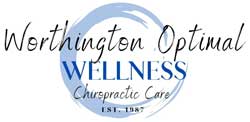Click HERE To Buy Cleocin Online ↓
 Cleocin Over-the-counter Alternatives: What You Should Know
Cleocin Over-the-counter Alternatives: What You Should Know
Understanding Cleocin: What It Treats
Cleocin, also known by its script name, is a powerful antibiotic commonly prescribed for treating serious bacterial infections. From skin irritations to bacterial vaginosis, Cleocin tackles a broad spectrum of conditions. It is especially effective for individuals with infections that might be resistant to other treatments. However, not everyone can recieve this medication due to potential side effects or contraindications. Thankfully, there are various alternatives and over-the-counter solutions that can be considered for those unable to tap into Cleocin's capabilities. Ready to explore these options?
| Bacterial Infection | Cleocin Treatment |
|---|---|
| Skin Infections | Highly Effective |
| Bacterial Vaginosis | Commonly Prescribed |
Understanding the specific bacterial strain is critical in a doctor’s decision to prescribe Cleocin or recommend an alternative. While it is a go-to in many cases, the emergence of antibiotic resistance means that professionals sometimes have to persue different routes. Moreover, individual patient history and allergies must be considered to avoid adverse reactions, making a dialogue with a healthcare provider indispensable. Whether you’re looking for OTC options or exploring natural remedies, being informed will empower your healthcare decisions.
Why Seek Alternatives to Cleocin?

While Cleocin is a potent weapon against bacterial infections, some people seek alternatives. The decision to explore on-the-counter options could stem from various motives, including the sticker shock of prescription costs or the quest to avoid potential side effects. Though Cleocin's efficacy is noteworthy, some may wish to pursue alternatives that they perceive as more natural or cost-effective. Sometimes, individuals might face an insurance reject for Cleocin, pushing them to explore effective yet accessible OTC or natural remedies.
Natural Remedies for Bacterial Infections
Harnessing nature’s resources is a centuries-old approach that continues to offer promising alternatives when it comes to replacing cleocin in managing bacterial infections. Garlic, with its potent antibacterial properties, serves as a comp for its effectiveness in fighting bacterial strains. On the other side of the herbal spectrum, Echinacea supports the immune system's defenses. It's important, however, to be cautious and follow the sig closely, as the natural approach is not without its challenges, including varying potency and potential interactions.
Over-the-counter Options to Consider

For those in search of accessible and alternative solutions to Cleocin, the landscape of OTC options is intriguing. One promising choice could be tea tree oil, celebrated for its antibacterial properties. Meanwhile, for oral health, propolis, nature's own 'Elixir,' can be quite effective. However, don't forget the power of probiotics, which aid in maintaining balance within your gut. Always double-check the sig before trying new treatments, and be aware that some remedies, while OTC, may not work immediately, or "stat."
Exploring the Pros and Cons of Alternatives
Alternatives to Cleocin can offer various benefits and drawbacks. On teh plus side, OTC options might be more accessible and sometimes cost-effective. They can be picked up at your local pharmacy drive-thru without needing a script. Additionally, some natural remedies have minimal side effects, which can be appealing to those trying to avoid the hangover from stronger meds.
| Pros | Cons |
|---|---|
| Accessibility | May be less effective |
| Lower cost | Potential for trial and error |
| Minimal side effects | Lag in stat results |
However, not all alternatives are as potent as prescribed options like Cleocin, making it crucial to weigh effecacy against access when selecting a solution. Always check sig for clear guidance.
Consult with a Healthcare Professional First
When considering treating bacterial infections with OTC options, it’s crucial to engage with your healthcare provider. They can provide sig aligned to your specific needs and ensure that alternatives don’t conflict with existing meds. Prescription meds aren't always necessary; there are viable on-the-counter solutions available, but they might not be suitable for everyone. Consulting with your provider can help you acommodate these options safely.
A professional can offer insights on potential side effects and assess if any underlying conditions exist that may not have been previously apparent. They ensure that you’re not caught in a cycle of misdiagnosis or ineffective treatment, saving time and avoiding sticker shock. Engaging them early is key to a successful outcome.
